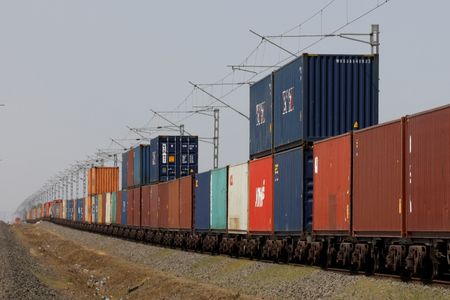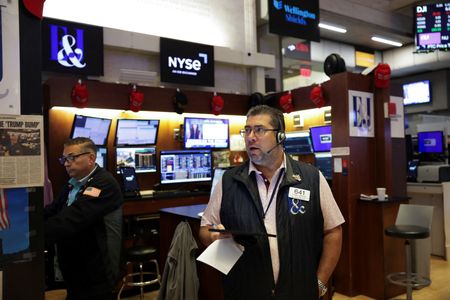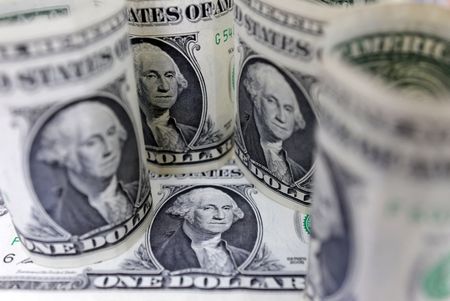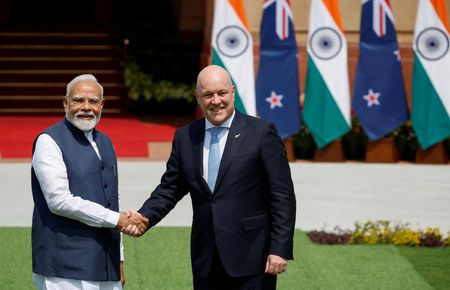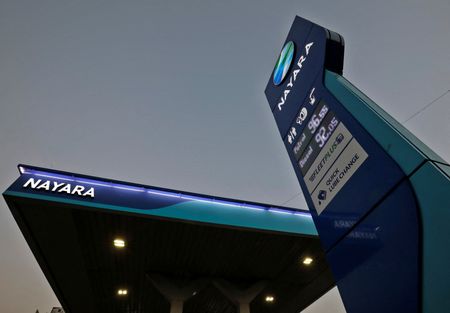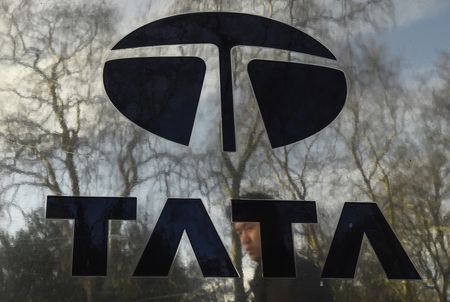By Shubham Batra
(Reuters) -India has pushed back against a proposal by the European Union as part of free trade agreement talks which would give the 27-nation bloc a say in decisions related to capital flows, two Indian government sources said.
The proposal, unusual in most free trade agreements, has raised concerns in New Delhi over limiting its ability to act unilaterally during crises, as both sides aim to conclude the deal by the end of 2025.
India has in the past imposed restrictions on outflows, including during a currency crisis in 2013.
In its proposal to India, the EU has suggested an oversight committee on trade in services and investment policies which would review policy actions, including those taken during financial or balance of payments crises.
“India fears such oversight could allow the committee to question or reverse crisis-time policy measures taken by it, which compromises a sovereign’s decision-making powers,” one of the sources said.
India, which trades $190 billion in goods annually with the EU, has also sought clarity on whether decisions taken during emergencies, such as restrictions on capital flows, could be overturned if the committee finds them inappropriate.
While trying to limit India’s control over capital account decisions, the EU proposes it would have the right to impose temporary restrictions on capital outflows during serious economic difficulties.
India argues this creates an imbalance in safeguard powers and deviates from the EU’s own practice in FTAs with Vietnam, Singapore, and South Korea, where both sides can apply such measures in exceptional circumstances, the source said.
Both sources declined to be identified as they are not authorised to the media.
Emails sent to the Reserve Bank of India, Ministries of Finance and Commerce and to the Prime Minister’s Office requesting comment did not receive a response.
SEEKING BALANCED TRADE PACTS
India’s opposition to the EU’s proposal comes as it negotiates deals with other trading partners including the U.S. and Australia.
Accepting oversight or unequal safeguards could limit India’s powers on domestic policies and may weaken its push for balanced trade pacts in the future, the sources said.
“India has not had an agreement on the FTA so far because of issues such as these…because every country in the bloc wants their point of view or interest to be included,” a third India government source said.
The European Commission, in its report following the July round of negotiations in Brussels, said “good progress” had been made on capital movements, payments, and transfers, with discussions focused on remaining areas of divergence.
India-EU trade talks have faced hurdles over the EU’s push to cut import taxes on cars and dairy while seeking stricter climate and labour rules. India wants to protect local farmers, avoid rigid green rules, and keep control over legal disputes.
(Reporting by Shubham Batra in New Delhi; Additional Reporting by Shivam Patel; Editing by Lincoln Feast.)

